"Just Joint Pain?" Think Again: Results From Our 9th RA In America Survey
One of the most frustrating aspects of rheumatoid arthritis (RA) is the lack of awareness and constant misinformation.
RA is often dismissed by the general public as solely a joint disease. However, this is far from the truth. Using results from our 9th RA In America Survey, we show some of the many ways that RA affects the whole body and what others are doing to cope.
Joint and non-joint-related RA symptoms
Rheumatoid arthritis is an autoimmune condition. Stiff and painful joints and bone deformities are a few of the joint-related issues that are symptoms of RA. However, there are also non-joint-related symptoms that affect the body. This is one of the key differences between RA and osteoarthritis (OA), a condition that mainly affects joints and cartilage.
Some of the non-joint-related symptoms shared by this RA community include:
Within the last month of taking the survey, community members experienced other non-jointed-related symptoms, such as dry mouth (55 percent), rheumatoid nodules (43 percent), and low-grade fever (18 percent).
RA flare-ups
Flares (also known as flare-ups) are a difficult aspect of RA. Flares often bring a worsening of symptoms for a period of time.
Stress, certain foods (such as nightshades or processed sugars), and overexertion are just a few examples of commonly discussed flare triggers.
Steroids are just one type of drug commonly used to treat flares. Results show 92 percent of survey takers reported treating a flare with a steroid.
RA-plus: managing other health conditions
Many community members are managing other conditions along with their RA. These conditions include:
- Osteoarthritis – 68 percent
- Allergies – 49 percent
- Gastroesophageal reflux disease (GERD) – 39 percent
- Neuropathy – 37 percent
- Fibromyalgia – 31 percent
Our survey showed that more than 4 in 10 respondents are living with 2 or more autoimmune conditions. Common autoimmune conditions reported in this survey include Sjogren’s syndrome (16 percent), ankylosing spondylitis (6 percent), and lupus (6 percent).
What are people taking to help?
Many in the community use a variety of tools to help manage RA symptoms. Methotrexate is a traditional disease-modifying antirheumatic drug (DMARD) and is often the first drug used to treat RA.
Results show that 67 percent of respondents are currently using a DMARD, with 36 percent currently using methotrexate. Results also show that 55 percent of respondents are currently using a biologic or JAK inhibitor. Humira, Enbrel, and Orencia were the most commonly used biologics.
Some people with RA have very limited treatment options due to existing health conditions. Below are additional ways that people are supporting their health with RA.
Managing emotional and social changes
RA changes the way people see themselves – physically, emotionally, and socially. As one community member puts it:
“I feel like a failure. I'm not the same person I used to be. I can't enjoy life in the same way as before. I don't feel productive. I'm always tired and/or in pain so I can be grouchy to the people I love.”
Because RA brings about these major changes, community members live by tips and gentle reminders to help manage life with RA.
Other gentle reminders shared by members of this community include:
- Every person with RA is different
- Do not feel guilty for not being productive or canceling
- Always advocate for yourself
- Avoid stress, and do not overdo it
- Be gentle with yourself, and listen to your body
- Be flexible and patient with yourself – plans will change, and your ability to do things will vary day-to-day
- Seek out mental healthcare if you need it
The 9th RA In America Survey was conducted online from June 2021 through August 2021. The survey was completed by 3,856 people.
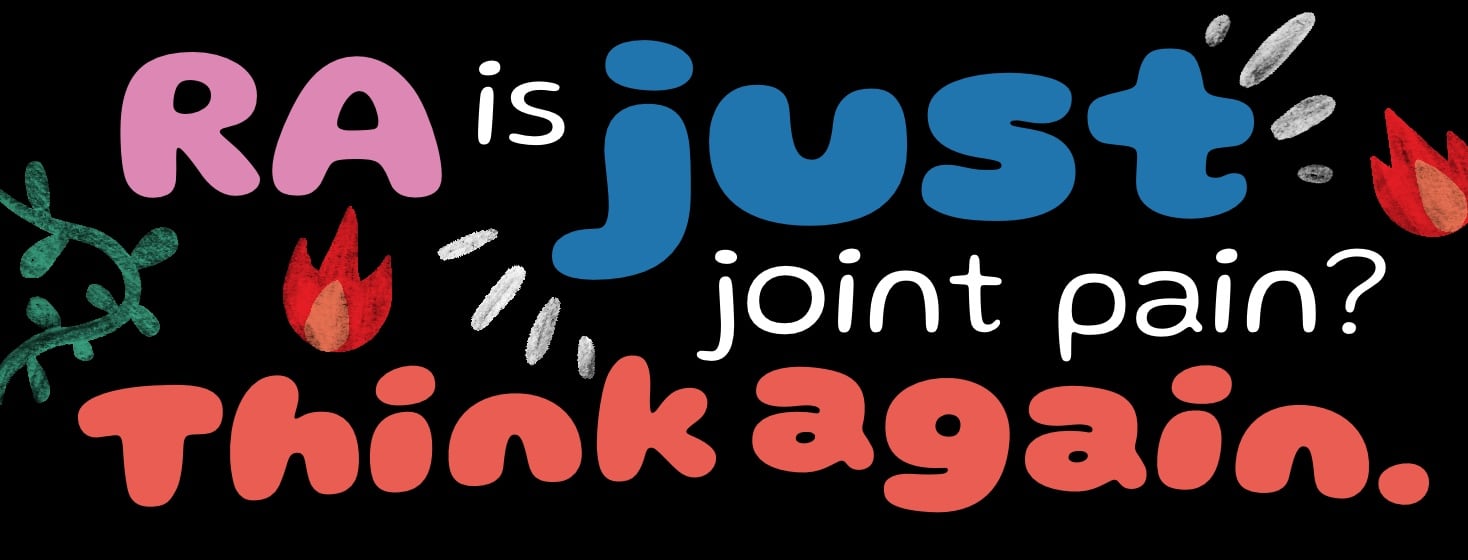
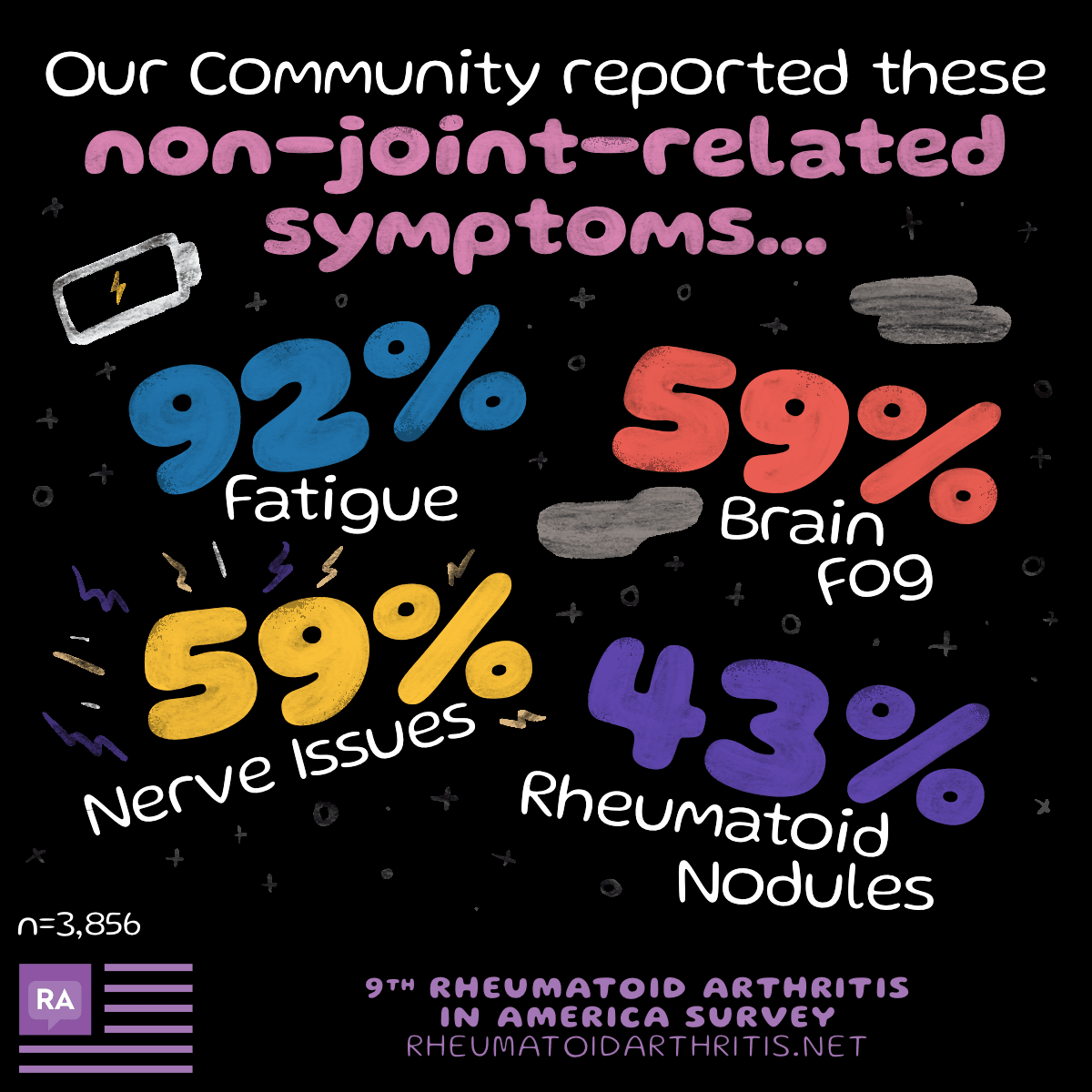
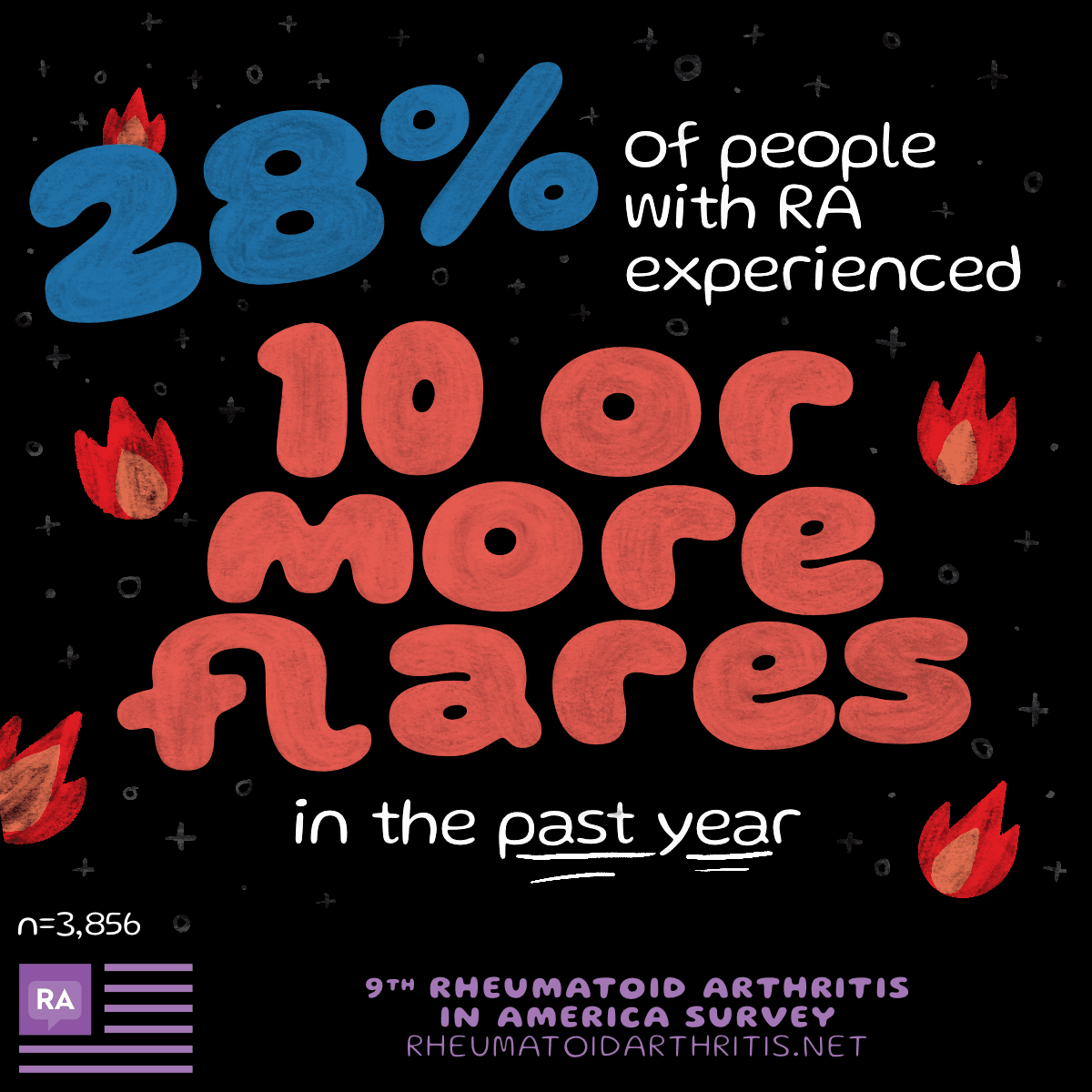
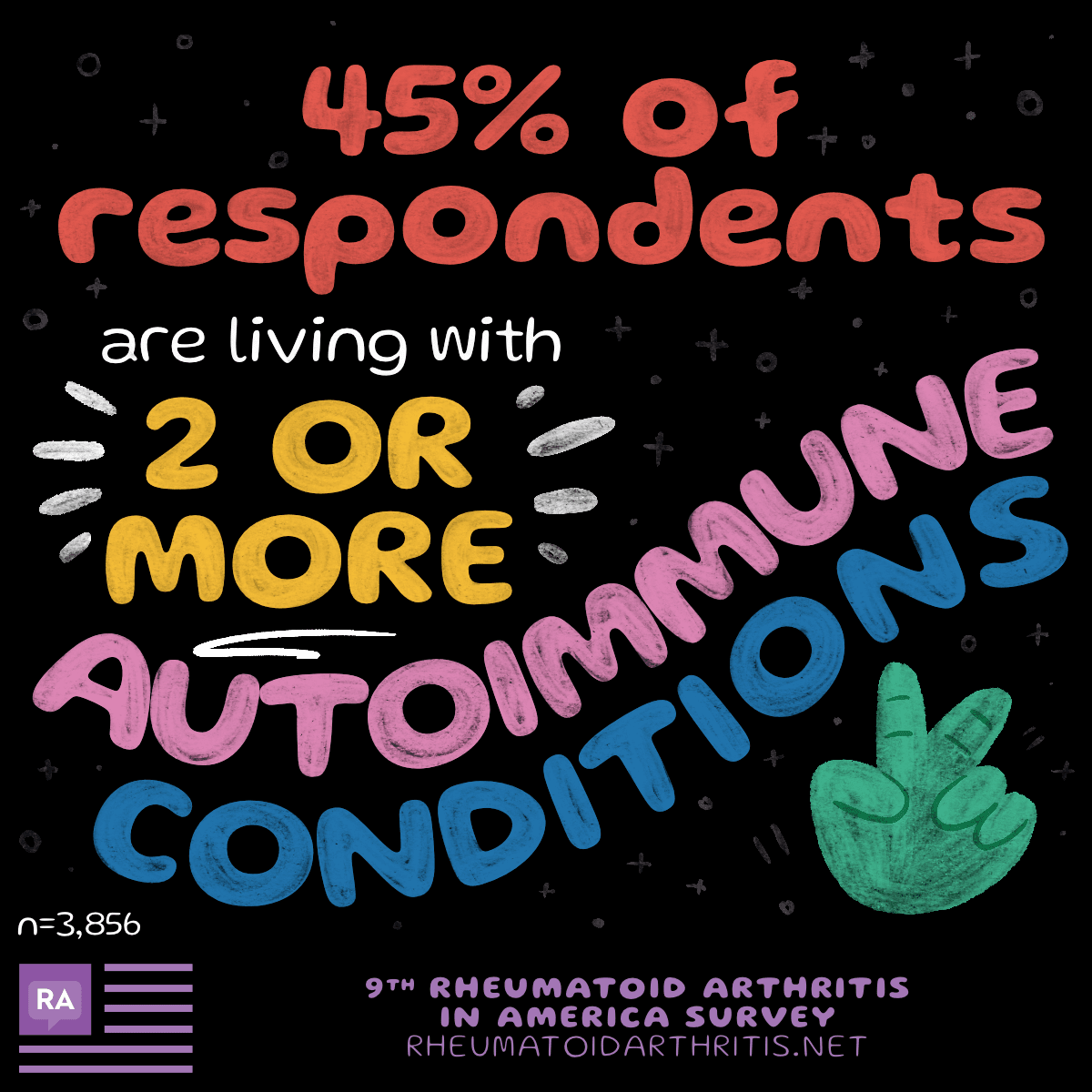
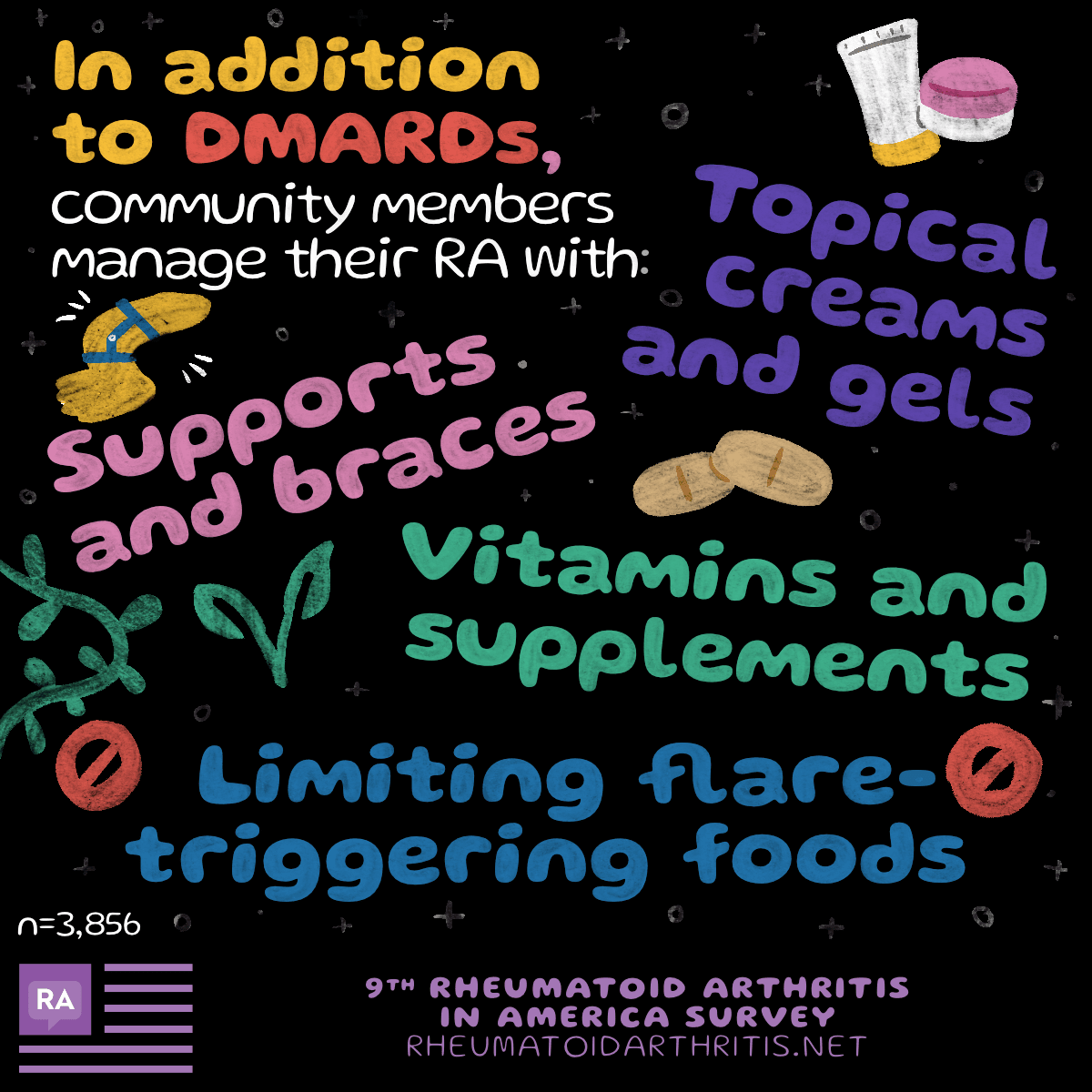
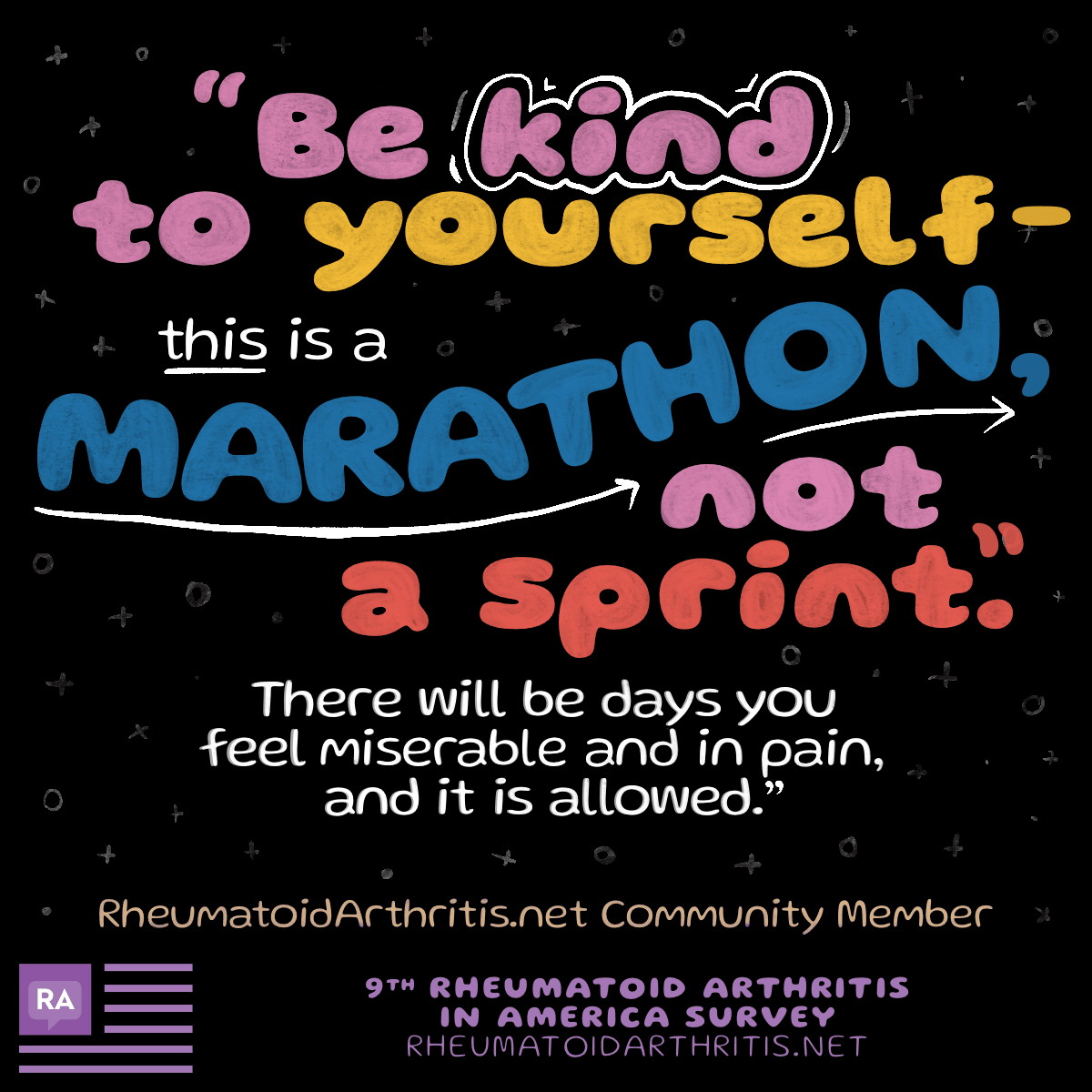
Join the conversation